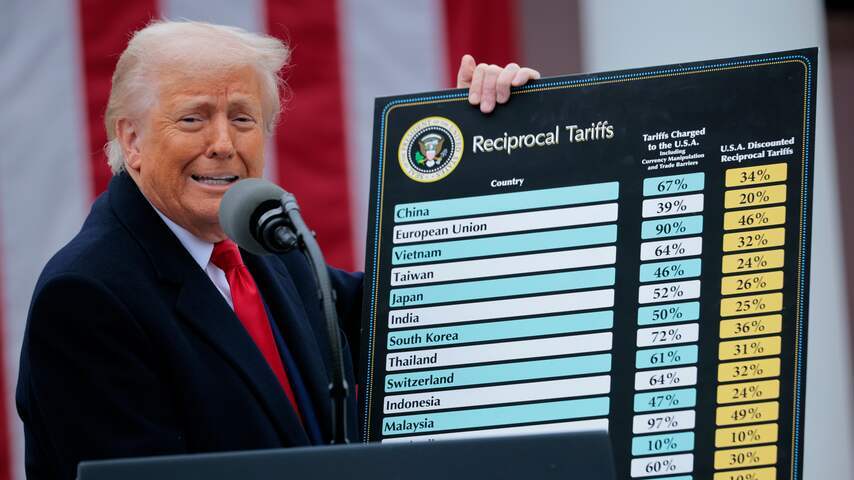
All import duties that President Trump has imposed on many dozens of countries in recent months are unconstitutional. That is the conclusion of an American federal court. The consequences of that judgment are still unclear: the White House will in any case appeal.
In April, on his self-proclaimed ‘Liberation Day’, Trump imposed import duties of dozens of percent on countries that sell more to the US than they buy. It turned out to be the beginning of a trade war, as some of the countries reacted by imposing import duties on the US themselves. Later, Trump decided to postpone or adjust his duties for some countries (and also the European Union).
But adjusted or not: it is not up to Trump to impose such duties, the three-member trade court ruled Wednesday to Thursday night (Dutch time). That is only allowed by the American Congress. Trump set all duties on his own. He bypassed Congress because that was necessary for “national security,” the president reasoned at the time, incidentally without explaining it in detail. But that was an unconstitutional move, the judges conclude.
“The court does not rule on the wisdom or effectiveness of the president’s use of import duties as leverage. This is not permissible. Not because it is unwise or ineffective, but because federal law does not allow it,” the ruling states.
Trump would have to reverse his import duties within ten days, the verdict says. But the American government immediately appealed against the ruling, because it in turn does not think it is up to the court to interfere with the president’s choices. In a reaction, the government lawyer spoke of a “judicial coup” that had “completely gotten out of hand”.
Until a higher court and then possibly the American Supreme Court has ruled in that appeal, nothing will change. And even after that, the consequences are still unclear. If those higher judges conclude the same, Trump would have to reverse his import duties (insofar as he had not already done so himself). But in recent months, the American president has been rebuffed more often by courts and he has not always listened to that.
The lawsuit was filed by a collaborative association of five small American companies that import many products from abroad, including a musical instrument manufacturer from Virginia and a beverage importer in the state of New York. In addition, there are at least five other lawsuits filed against the import duties.